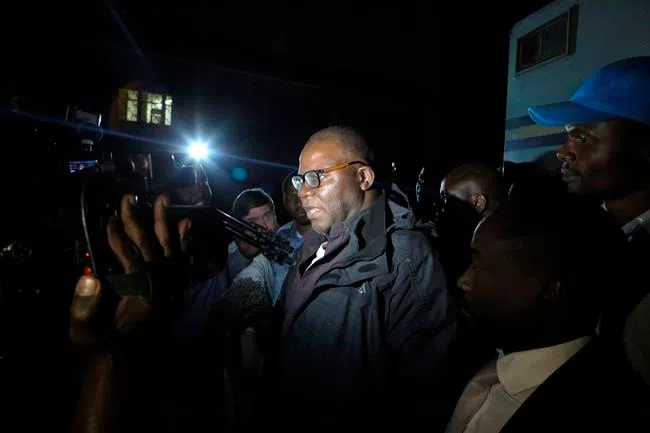
Zimbabwe opposition leader charged after asylum bid fails
HARARE, Zimbabwe — Senior Zimbabwean opposition figure Tendai Biti on Thursday was charged with inciting public violence and declaring unofficial election results as fears grew about a government crackdown following the disputed July 30 election.
The court appearance followed dramatic events in which Biti fled to Zambia, was denied asylum and was handed over to Zimbabwean security forces in defiance of a Zambian court order. Western diplomats, including the United States, and the U.N. refugee agency quickly expressed concern.
“We will keep on fighting,” Biti said as he arrived at court in the capital, Harare. The charge of inciting public violence could bring up to a decade in prison, while the charge of declaring unofficial election results carries a maximum six-month sentence. He was granted $5,000 bail but must surrender his passport, report to authorities twice a day and not address political rallies.
Biti’s plight has raised concerns that the government of President Emmerson Mnangagwa, who narrowly won the first election after the fall of Robert Mugabe, will treat the opposition just as harshly as before despite promises of reforms. The opposition says it is preparing a legal challenge to the election results, calling them fraudulent.
